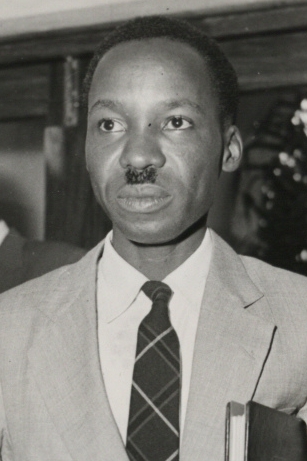
Dar es Salaam is the largest city and financial hub of Tanzania. It is also the capital of the Dar es Salaam Region. With a population of over nine million people, Dar es Salaam is the largest city in East Africa by population and the sixth-largest in Africa. Located on the Swahili coast, Dar es Salaam is an important economic center and one of the fastest-growing cities in the world.
Turkish hip hop refers to hip hop music produced by members of the Turkish minority in Germany, and to a lesser degree by hip hop artists in Turkey. The Turkish minority, called the Turks, first drew inspiration from the discrimination and racism they received while living as migrant workers in Germany in the 1960s. Turkish hip hop uses Arabesk music, a folk style that finds its roots in Turkey during the 1960s, and is influenced by the hip hop music of America and Germany. Album artwork, lyrical content, and the Turkish language are used by hip hop artists to express their uniquely Turkish identity.

As it is in other countries, the music in Tanzania is constantly undergoing changes, and varies by location, people, settings and occasion. The five music genres in Tanzania, as defined by BASATA are, ngoma, dansi, kwaya, and taarab, with bongo flava being added in 2001. Singeli has since the mid-2000s been an unofficial music of uswahilini for unplanned communities in Dar es Salaam, and is the newest mainstream genre since 2020.
Joseph Mbilinyi, known for his stage names Mr. II, Sugu and 2-proud, is a Tanzanian politician, human rights activist and rapper. He was a Mbeya Urban elected member of Parliament from 2010 to 2020.
Bongo Flava is a nickname for Tanzanian music. The genre was developed in the 1990s, mainly as a derivative of American hip hop and traditional Tanzanian styles such as taarab and dansi. Lyrics are usually in Swahili or English.
Tanzanian Hip-hop, which is sometimes referred to Bongo Flava by many outside of Tanzania's hip hop community, encompasses a large variety of different sounds, but it is particularly known for heavy synth riffs and an incorporation of Tanzanian pop.
X Plastaz is a Tanzanian hip hop musical group based in Arusha and founded in 1996. They are one of the most popular acts in the Tanzanian hip hop scene. Their style mixes elements from international hip hop and traditional Maasai music, represented by Maasai singer Merege. While Merege sings in maa, the other members of the group rap in swahili and haya. Merege is also well known to perform in traditional Maasai clothing.

Following Tanganyika's independence (1961) and unification with Zanzibar (1964), leading to the formation of the state of Tanzania, President Julius Nyerere emphasised a need to construct a national identity for the citizens of the new country. To achieve this, Nyerere provided what has been regarded by some commentators as one of the most successful cases of ethnic repression and identity transformation in Africa.
Kwanza Unit (KU) was an early Tanzanian hip hop group. Its name means "First Unit" and it was formed in 1993 by a merger of several groups and solo artists. They started rapping in English, but later used Swahili as well.

Ujamaa was a socialist ideology that formed the basis of Julius Nyerere's social and economic development policies in Tanzania after it gained independence from Britain in 1961.

Dully Sykes is a Tanzanian Bongo Flava musician, songwriter, record producer and composer.
Zavara Mponjika or simply MC Rhymson is a rapper from Tanzania who founded the Villain Gangsters is a founding member of the Kwanza Unit.
Dataz is a Tanzanian rap artist and she is among few earliest female hip hop musicians in the country.
Radio Tanzania Dar es Salaam is a radio service in Tanzania.
Balozi Dola,a.k.a.Balozi or Dolasoul, is a self-proclaimed “socially conscious” hip hop artist from Tanzania.
Saleh J, prominent Tanzanian hip hop pioneer, was born in Dar es Salaam as Saleh Jaber.
Ramazani "Remmy" Mtoro Ongala was a Tanzanian guitarist and singer. Ongala was born in Kindu, in what was the Belgian Congo at the time, and now is the Democratic Republic of the Congo.
Tanzania Music Awards are national music awards held annually in Tanzania. They are also known as the Kilimanjaro Music Awards or the Kili Music Awards after their sponsor. The awards were established in 1999 by the National Arts Council (BASATA) under the Tanzanian Ministry of Education and Culture.

Vanessa Hau Mdee, is a Tanzanian recording artist, television personality and radio host. Mdee is popularly known for being the first ever Tanzanian MTV VJ. She later rose to prominence as a radio and TV host, hosting Epic Bongo Star Search and Dume Challenge for ITV Tanzania before signing to B'Hits Music Group in late 2012.
The Hip-Hop Asili Festival (HAF) is an annual celebration of Hip-Hop music and culture in Tanzania. It is produced by local artists and supported by French Embassy in Tanzania.





